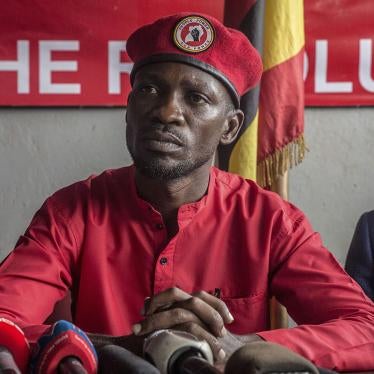Human Rights Watch welcomes the conclusions of reports of the High Commissioner for Human Rights presented to the Human Rights Council at its 21st and 23rd session and shares her view that in the area of human rights, actual implementation remains extremely weak in South Sudan. The government took noteworthy steps to develop its legal and institutional structure, but South Sudan continues to face enormous challenges.
Human Rights Watch calls upon the Human Rights Council to establish a meaningful follow-up mechanism on the situation of human rights in South Sudan, such as an Independent Expert, toprovide technical assistance to the government of South Sudan in developing objectives, indicators and lines of responsibility, to monitor the situation of human rights, and to report back to the Council on progressand remaining challenges.
Tens of thousands have been displaced and hundreds killed in inter-communal violence in South Sudan, especially in Jongleistate but also in Unity, Warrap and Lakes states, over the past year. In May the UN reported that 11,000 people fled Jonglei'sPiborcounty to Juba following conflict in Jonglei this year. 19,000 people from Jonglei have also fled to Ethiopia, Kenya or Uganda. A lack of accountability for crimes committed has contributed to a continuation of inter-ethnic conflicts in 2013.
The legacy of two decades of civil war presents massive challenges to developing a functional criminal justice system. As Human Rights Watch documented in a report in 2012, weaknesses in the justice system give rise to serious human rights violations, such as arbitrary detentions, prolonged periods of pre-trial detention and poor detention conditions. There is an almost total lack of legal aid in the criminal justice system.
The commitment to being a pilot country for the UN Plan of Action of the Safety of Journalists and the Issue of Impunity is a positive step. But journalists and perceived critics of the government have been frequently threatened, arrested and detained without charge. Security forces engage in de facto censorship through harassment and illegal detention of journalists and editors. South Sudan’s National Security Service (NSS) is responsible for many such cases. South Sudan has yet to enact any media laws, although three bills are before parliament. Editors and journalists say the absence of laws establishing a legal mechanism to protect media freedom and safeguard the media in carrying out their reporting, leaves them especially vulnerable to harassment, arbitrary arrest, and censorship.
Abuses by security forces includedextra-judicial killings and harsh beatings during a civilian disarmament campaign in Jongleistate from March to October 2012, with continuing abuses reported in 2013. The military’s efforts to hold perpetrators accountable in the following months were not sufficient to curb the abuses. In Wau, Western Bahr el Ghazal state, security forces killed eight and injured at least 22 people when they shot into a crowd of peaceful protesters in December 2012.Authorities have investigated some of the crimes committed during the period of civil unrest in Wau in December, but those responsible for the shooting and killing of the protesters have not been prosecuted.
We welcome that the South Sudanese government has indicated today its endorsement of many key international human rights treaties and has repeatedly acknowledged its concerns over the human rights situation and asked for support in tackling challenges. These ratifications are an important first step.
While the UN mission in South Sudan’s peacekeeping operation includes a human rights component,it is not sufficient to meet the enormous challenges facing South Sudan at this early stage in the country's development. A new mechanism established by the HRC would provide independent analysis and focused technical assistance in many priority areas.






